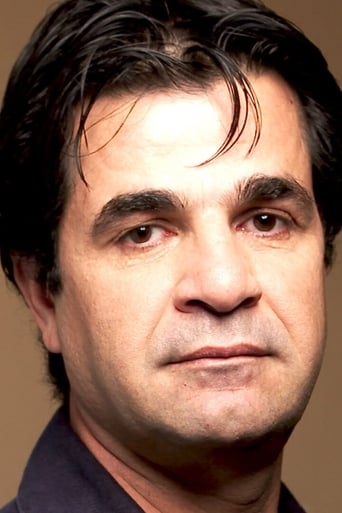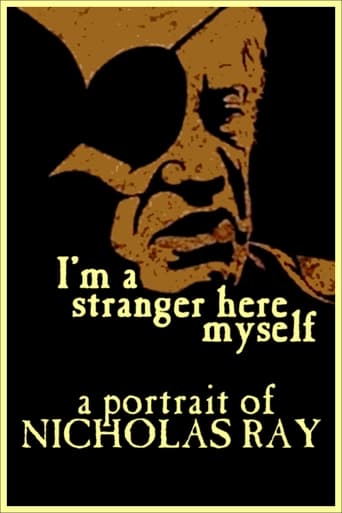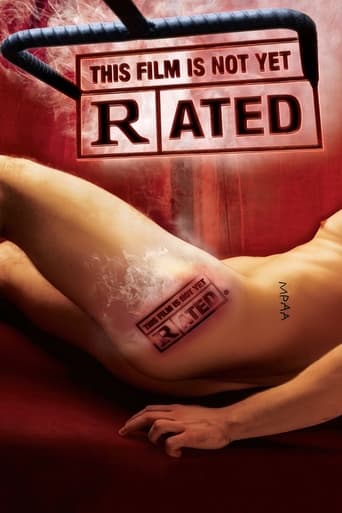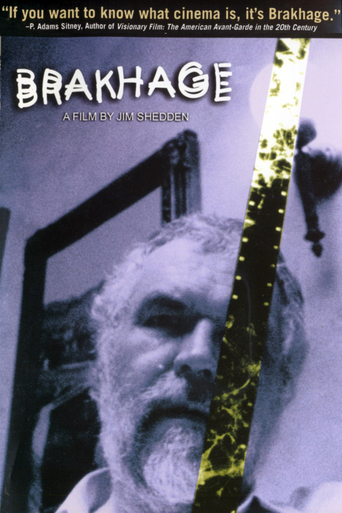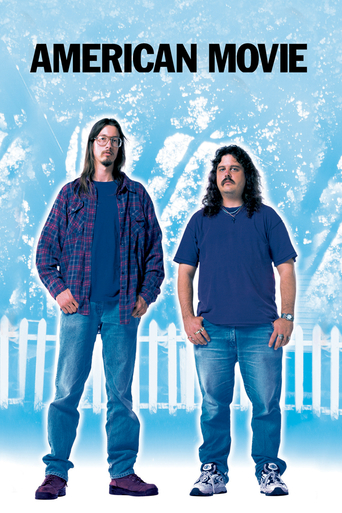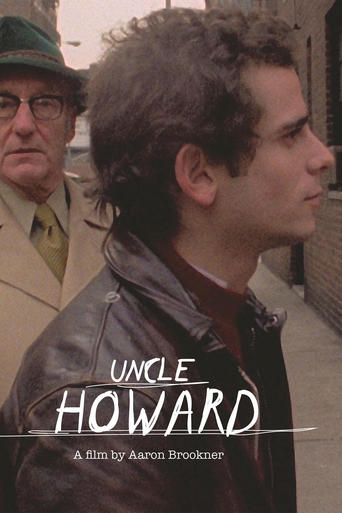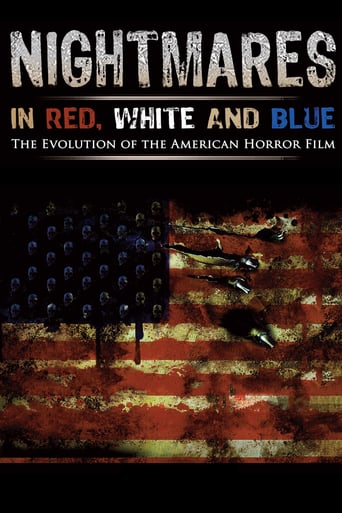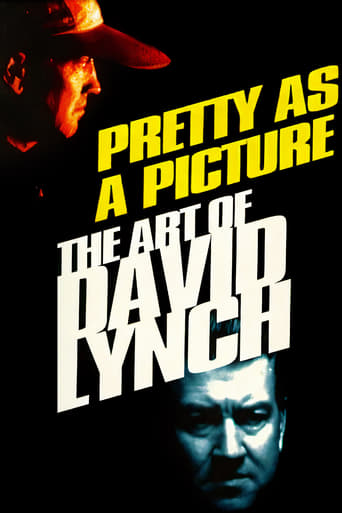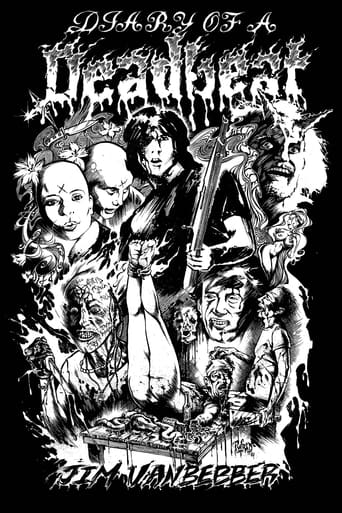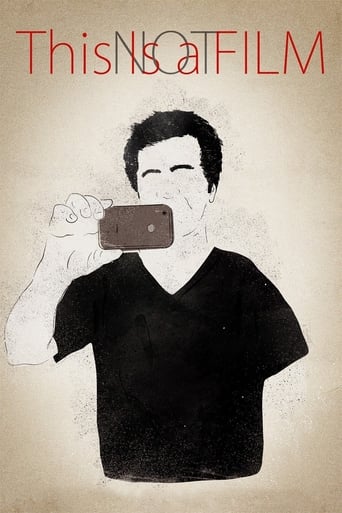
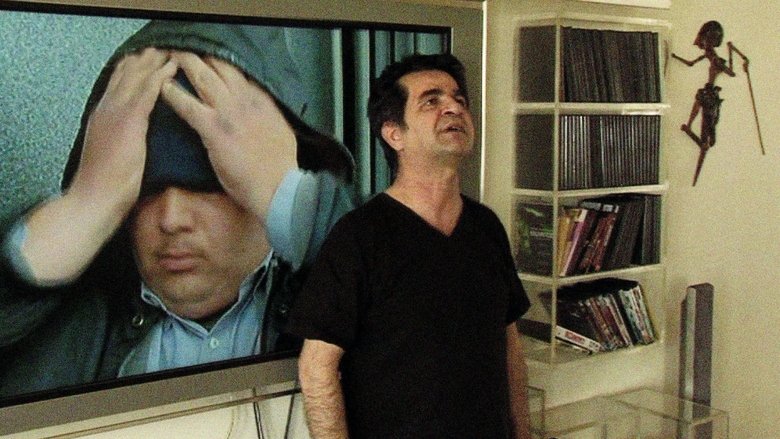
This Is Not a Film (2011)
Renowned Iranian director Jafar Panahi received a 6-year prison sentence and a 20-year ban from filmmaking and conducting interviews with foreign press due to his open support for the opposition party in Iran's 2009 election. In this film, which was shot secretly by Panahi's close friend Mojtaba Mirtahmasb and smuggled into France on a USB stick concealed inside a cake for a last-minute submission to Cannes, Panahi documents his daily life under house arrest as he awaits a decision on his appeal.
Watch Trailer
Cast


Similar titles
Reviews
Perfect cast and a good story
Did you people see the same film I saw?
When a movie has you begging for it to end not even half way through it's pure crap. We've all seen this movie and this characters millions of times, nothing new in it. Don't waste your time.
Very good movie overall, highly recommended. Most of the negative reviews don't have any merit and are all pollitically based. Give this movie a chance at least, and it might give you a different perspective.
There are not many viewers who are aware of philosophy and its paradoxes. Liar's paradox is one of the most famous philosophical puzzles which continues to mock human beings. Its beauty lie in deciphering the phrase "This sentence is false."Anybody who tries to interpret it encounters a cumbersome dilemma as both options do not seem to be effective. Let us discuss something about a film. Most of us know well what a film is and what it is supposed to be. However, we are doomed if we are asked to describe what a film is not ? The whole idea of a film not being a film is absolutely ridiculous rather preposterous as a film can only be a film and nothing else. A film cannot be an actor, a cinema hall, a reel, a typewriter or a mobile phone. For a film to be a film, to be called a film, to be classified as a film, it has to be a film first and then it can be anything else. This is the most elementary thing one can say about a film's ontology. A film with a weird title like "This is not a film" makes mockery of cinema as a medium of artistic expression. Jafar Panahi has made better films but he has put his entire oeuvre to shame by making what many of us would like to call a "very bad film". It is an insipid exercise in arrogance, idiocy, show-off and vanity as Jafar Panahi is shown how important and influential he is as he makes phone calls to his contacts, whiles away his time by playing with a pet iguana and does other minor tasks at home. One knows well that television is often derided as being a stupid means of entertainment. However, "This is not a film" emerges as even worse than a work of television as it does not have any basic entertainment value. This film is scandalous as it doesn't carry any 'artistic message'. It is merely a pseudo exercise in garnering sympathy for a director who has chosen to call his film as 'it is not a film'.
This film was roundly praised by the filmmaking community and stories of it being smuggled out of Iran in a cake certainly helped to raise awareness of the fate of Jafar Panahi. Unlike some, I shall not pretend to be knowledgeable enough to have heard of him before this film, nor to be a fan of his work (!) as others were keen to point out – for me this was a learning experience as I never heard of him. As such the film was interesting in how it informed me about the situation and the bigger picture. However it did this by simply existing – before I'd even watched a second of it, so what would the actual film bring to the table?Well, the main thing is to illustrate the restraint of creativity by having Panahi "story-board" some of his existing script and also talk about some moments from his previous films. These moments are pretty engaging because he has a passion and he has a vision that comes over in these scenes. Other scenes add to his story and add value in this way, however too much of the film just illustrates his time in his house – and his time stuck in the house is dull; dull for him and dull for us. In a way it is good to share this, but it doesn't engage the audience and by shooting whatever is said or happens, then it feels like there is no goal or structure to the film.I can understand the logic and, as others have said, this is non-violent protest; Panahi has the chance to violently lash out with either direct verbal attacks or with snipe commentary and presentation, but he doesn't do this – instead he peacefully sits down in front of the camera and makes this non-film as a peaceful protest against the situation, not hurting anyone. However this passive approach doesn't engage and it is increasingly dull as it has less and less to say. I know the film was beloved of festivals and lovers of cinema and I would love to claim beauty and emotion and be able to present myself a certain way, but this was not the case for me. The value in the film is not enough for the length and I was bored of it outside of the few sections I describe. I am very glad the film exists – very glad indeed, but watching it is a very different matter.
I saw "This Is Not A Film" as part of the Ghent filmfestival 2011. Originally the film "Absolutely Tame Is A Horse" of the same director was scheduled. It had to be replaced in the last minute, due to an export ban on the film itself, plus the Iranian distributor loosing his license.Nearly all 75 minutes that the replacement film takes, are shot within the apartment of the director in question. He is not allowed to make films, but nowhere was forbidden to read a screenplay aloud. On the other hand, as correctly noted by the camera man, recording this reading might still be considered film making. Hence he named this film "This Is Not A film", which may or may not help to evade the issue.There were fireworks, which we saw announced on TV as non-religious, a different word for Not Allowed. Yet we clearly saw and heard fireworks on several places spread over the neighborhood. Could this be construed as some not-so-silent protest?? We felt a volatile atmosphere around these fireworks, albeit in an indirect way, because everyone seemed worried about their kids and relatives coming home in time. Moreover, when he was talking on the phone with a colleague who was underway, the latter had to discontinue abruptly when stopped by the police. This very apparently was cause for alarm. Later on he phoned back, and reassured us that the police only wanted to check his camera, lying unused on the passenger seat. All such signals combined clearly demonstrated an atmosphere of suppression and fear for the police.I was prejudiced by some reviews I've read, describing this not-a-film as a bit boring. Having seen it, I found that too harsh. It may apply to the elevator scene, but that was neatly broken up in small scenes providing for some diversion. Within the apartment, a nice intermezzo was created by a pet lizard. It was being fed in the beginning, and then disappeared out of sight for a while. Later on we saw it crawling over our main character (complaining about its sharp nails) and over the couch, to eventually find a resting place in the bookshelves.Throughout the film I was surprised that someone convicted for 6 years in prison, and a ban to make films for 20 years, was not locked up, but instead having some house arrest while awaiting an appeal. It clearly shows that I know nothing about the Iranian judicial system. Especially, as we learned from a phone call with his attorney, that his conviction was not on a legal basis, but on political grounds only. The latter is a concept very alien to us.All in all, this not-a-film gave a limited inside view in a country we only know from newspapers. It was also a revealing inside view in an Iranian apartment, larger and better equipped than I had assumed beforehand. We can only speculate how he pays for all this, given the ban on his regular work. It shows (again) how little we know about Iran. My final conclusion is that I did not regret keeping my tickets for this not-a-film, though I was entitled for a substitute at choice out of the festival program.
Hidden inside a birthday cake and smuggled out of the country, the 75-minute "effort", This is Not a Film, tells us all we need to know about the cruelty of the Iranian dictatorship and the courage of film director Jafar Panahi. Panahi, who has given the world such masterpieces as The White Balloon, The Circle, and Crimson Gold was arrested in March, 2010 and faces a ban of twenty years from making films and a six-year prison sentence for "propaganda against the Islamic Republic." This refers to exercising free speech by speaking out against the rigged elected of Iranian President Mahmoud Ahmadinejad.As part of his sentence, Panahi is barred from making films or writing screenplays, is unable to speak in his behalf, and forbidden to leave the country. While awaiting the results of his appeal, Panahi is filmed in his home by fellow director Mojtaba Mirtahmasb using a digital video camera and a cell phone. What begins as an innocuous home movie with Panahi sitting at his table eating breakfast takes on an added dimension when he calls Mirtahmasb, asking him to come by to discuss some ideas, but cautions him not to tell anyone about his visit.While waiting for his friend to arrive, he talks on the phone with his lawyer who tells him that the court may waive the 20-year ban on filmmaking but are not likely to reduce his jail sentence. When Mirtahmasb arrives, Panahi reads from his latest screenplay which was rejected by the censors. Acting out the story, he puts tape around the area to suggest the apartment in which the story occurs. As he begins to read the screenplay about a young woman forbidden by her parents to attend university, tears come to his eyes and he stops, saying poignantly, "If we could tell a film, then why make a film?" and expresses his regret about the harshness of the penalty he faces. Soon he takes care of his pet Iguana, Igi, and cares for a neighbor's dog who doesn't know the value of silence. As fireworks explode on the streets to celebrate the Persian New Year, a college student arrives to collect the trash as a substitute for the custodian, and the two engage in a dialogue, remembering the day when Panahi was arrested. To bring home the point even more forcefully, Panahi watches as a TV newscaster proclaims that fireworks are illegal. What started out as a home movie at the end becomes an act of non-violent protest.


